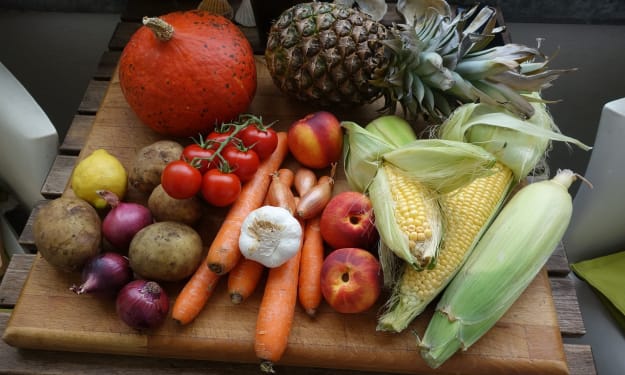Adding fermented foods like kimchi or sauerkraut to your dinner can support gut health
These foods are rich in probiotics, enzymes, and nutrients that enhance digestion, strengthen gut microbiota, and reduce inflammation

There has been growing interest in the benefits of fermented foods for gut health. Fermented foods like kimchi and sauerkraut are not only delicious additions to your dinner but also powerhouses of probiotics that can support digestive health.
Fermentation is a process in which microorganisms like bacteria and yeast convert carbohydrates, such as sugars and starches, into alcohol or acids. This process not only preserves the food but also enhances its nutritional value and contributes to the development of beneficial probiotics.
Probiotics and Gut Health
Probiotics are live microorganisms that, when consumed in adequate amounts, confer a health benefit on the host. These beneficial bacteria can improve the balance of the gut microbiota, the community of microorganisms living in the digestive tract.
Scientific Insight: A study published in Nature Reviews Gastroenterology & Hepatology found that probiotics can positively influence gut health by enhancing the gut barrier, modulating the immune system, and inhibiting the growth of harmful bacteria.
Benefits of Fermented Foods for Gut Health
Adding fermented foods like kimchi and sauerkraut to your dinner can offer several health benefits, particularly for your digestive system:
1. Improved Digestive Function
Fermented foods are rich in enzymes that can aid in the digestion and absorption of nutrients. These enzymes help break down food components, making them easier for the body to process.
Health Impact: A study in the Journal of Applied Microbiology highlighted that the enzymes in fermented foods enhance the breakdown of proteins, fats, and carbohydrates, improving overall digestive efficiency.
2. Enhanced Nutrient Absorption
The fermentation process can increase the bioavailability of certain nutrients, making them more accessible to the body. This means you can get more vitamins and minerals from your food.
Nutritional Benefit: Research published in Critical Reviews in Food Science and Nutrition found that fermented foods can enhance the absorption of essential nutrients such as iron, zinc, and B vitamins.
3. Strengthened Gut Microbiota
Consuming fermented foods can help populate your gut with beneficial bacteria. A healthy gut microbiota is crucial for maintaining digestive health, supporting immune function, and preventing gastrointestinal disorders.
Scientific Evidence: According to a study in the Journal of Medicinal Food, regular consumption of fermented foods like kimchi can increase the diversity and abundance of beneficial gut bacteria, promoting a healthy and balanced gut microbiome.
4. Reduced Inflammation
Probiotics in fermented foods can help reduce inflammation in the gut, which is linked to various chronic diseases such as inflammatory bowel disease (IBD) and irritable bowel syndrome (IBS).
Health Insight: A study published in Gastroenterology Research and Practice found that probiotics can reduce markers of inflammation in individuals with IBD, potentially alleviating symptoms and improving quality of life.
1. Start with Small Portions
If you're new to fermented foods, start with small portions to allow your body to adjust. Gradually increase the amount as you become accustomed to the taste and your digestive system adapts.
Begin with a tablespoon of kimchi or sauerkraut as a side dish. Over time, you can increase the portion size to suit your preference.
2. Use as a Side Dish or Condiment
Fermented foods make excellent side dishes or condiments. They can add a burst of flavor and probiotics to your meal without requiring significant changes to your usual dinner routine.
Meal Idea: Serve a small bowl of kimchi alongside grilled meats or fish. Alternatively, add a spoonful of sauerkraut to your salad or use it as a topping for burgers and sandwiches.
3. Incorporate into Salads
Fermented foods can add tangy flavor and texture to salads. They pair well with a variety of vegetables and can enhance the overall nutrient profile of your salad.
Make a gut-friendly salad with mixed greens, shredded carrots, cucumber slices, and a generous serving of sauerkraut. Dress with olive oil and lemon juice for a refreshing and nutritious meal.
4. Add to Soups and Stews
Fermented foods like kimchi can be incorporated into soups and stews, adding depth of flavor and a probiotic boost to these comforting dishes.
Add kimchi to your vegetable or tofu soup for a spicy kick. Be sure to stir it in just before serving to preserve the probiotics, as excessive heat can destroy beneficial bacteria.
5. Experiment with Different Fermented Foods
There is a wide variety of fermented foods available beyond kimchi and sauerkraut. Experiment with different options to find what you enjoy the most and to diversify your probiotic intake.
Try This: Explore other fermented foods such as miso, tempeh, kefir, and kombucha. These can be used in various recipes to keep your meals interesting and nutrient-rich.
While store-bought fermented foods are convenient, making your own can be a fun and rewarding way to ensure you're getting high-quality probiotics.
1. Choose Fresh Ingredients
Start with fresh, high-quality vegetables and other ingredients. Fresh produce will ferment better and provide more nutrients.
Ingredient Tip: Use organic vegetables when possible to avoid pesticides and other chemicals that can interfere with the fermentation process.
2. Use the Right Equipment
Fermentation doesn't require much-specialized equipment, but having the right tools can make the process easier. Basic equipment includes glass jars, weights, and airlocks.
Mason jars are excellent for small-batch fermentation. Use glass or ceramic weights to keep the vegetables submerged in brine and an airlock to prevent contamination.
3. Follow Reliable Recipes
When starting out, follow reliable recipes to ensure safety and success. Fermentation is a natural process, but it requires certain conditions to produce safe and tasty results.
Look for recipes from trusted sources such as fermentation books by experts like Sandor Katz or websites dedicated to fermentation.
4. Monitor the Fermentation Process
Keep an eye on your fermenting foods and check for any signs of spoilage, such as mold or off smells. Properly fermented foods should have a tangy aroma and a crisp texture.
Store your fermenting jars in a cool, dark place and check them daily. The fermentation time can vary depending on the temperature and the specific recipe.
About the Creator
Enjoyed the story? Support the Creator.
Subscribe for free to receive all their stories in your feed. You could also pledge your support or give them a one-off tip, letting them know you appreciate their work.






Comments
There are no comments for this story
Be the first to respond and start the conversation.